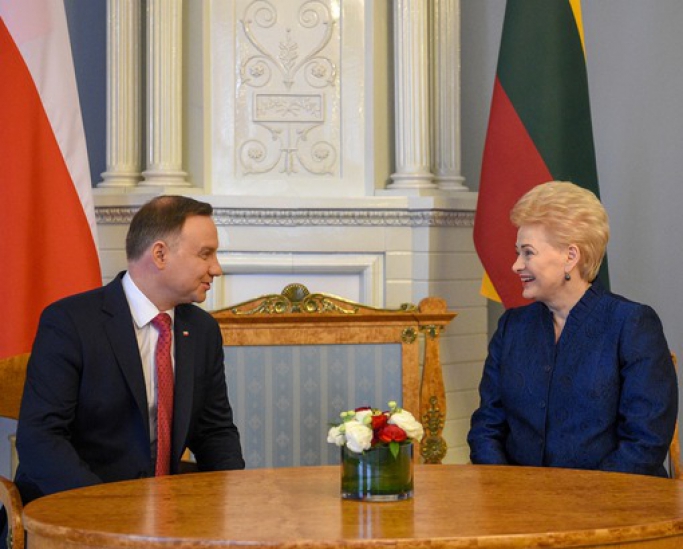Poland Rejects Germany's NS2 Stance
Nord Stream 2 (NS2) has continued to be a fault line, on which Europe’s political leaders split. Polish president Andrzej Duda, reported by Polish Radio and state Polish news agency PAP, said at a weekend visit to Vilnius: “I’d just like to express my surprise that the EU – in particular the Western members I believe – want to become dependent on Gazprom, the Russian gas monopoly,” arguing that Russia had used a reduction of its gas supplies as a “weapon in the hybrid war” against Ukraine.
Lithuania's president Dalia Grybauskaite, whom Duda met February 17, said that Lithuania and Poland have the same stance in regards to Nord Stream 2. Her website said that both presidents “discussed the common position on the Astravyets nuclear power plant and Nord Stream 2 that would increase the dependence on Russia by 80%; they are Russia’s geopolitical projects that pose a huge threat to the security of the entire EU.” She also said that construction of Gas Interconnection Poland–Lithuania, that would finalise integration of the regional gas market into EU market, will begin this year.
The remarks follow a meeting in Berlin the day before, February 16, of German chancellor Angela Merkel and Polish prime minister Mateusz Morawiecki.
According to German broadcaster Deutsche Welle, at the two leaders’ joint press conference Morawiecki warned that NS2 could threaten energy diversification and that it was important "no side has a price monopoly", whereas Merkel defended NS2 saying that Germany views the pipeline as an "economic project" and that it believes "Nord Stream poses no danger to diversification."
According to a recent coalition government between Merkel’s CDU-CSU centre right bloc and the centre-left SPD, which still needs to be ratified by their respective parties, Germany's economy and energy ministry looks set to be reallocated to the CDU – to Merkel loyalist Peter Altmaier, currently acting finance minister since October 2017. He and Merkel are believed to be closely aligned in their position over NS2, as he also serves as her chief of staff (or minister in the chancellor's office).
Germany’s current economy and energy minister is Brigitte Zypries (SPD) who has held the post since January 2017 but said she wants to retire from government.
Nord Stream 2, a Gazprom-owned project with financial backing from five western companies including Germany's Wintershall and Uniper, had particular resonance at the weekend, as it saw the official celebration of Gazprom's 25th anniversary. However the Russian ministry of gas was incorporated into a joint stock company in 1989.
A proposal to extend EC regulation of all pipelines entering the EU was criticised last month by the association representing gas supply companies in the EU, Eurogas. Routing of NS2 through Danish waters meanwhile is subject to a potential veto by Copenhagen.

Polish president Andrzej Duda (left) with Lithuanian president Dalia Grybauskaite, in Vilnius February 17 2018 (Credit: Lithuanian presidency)



